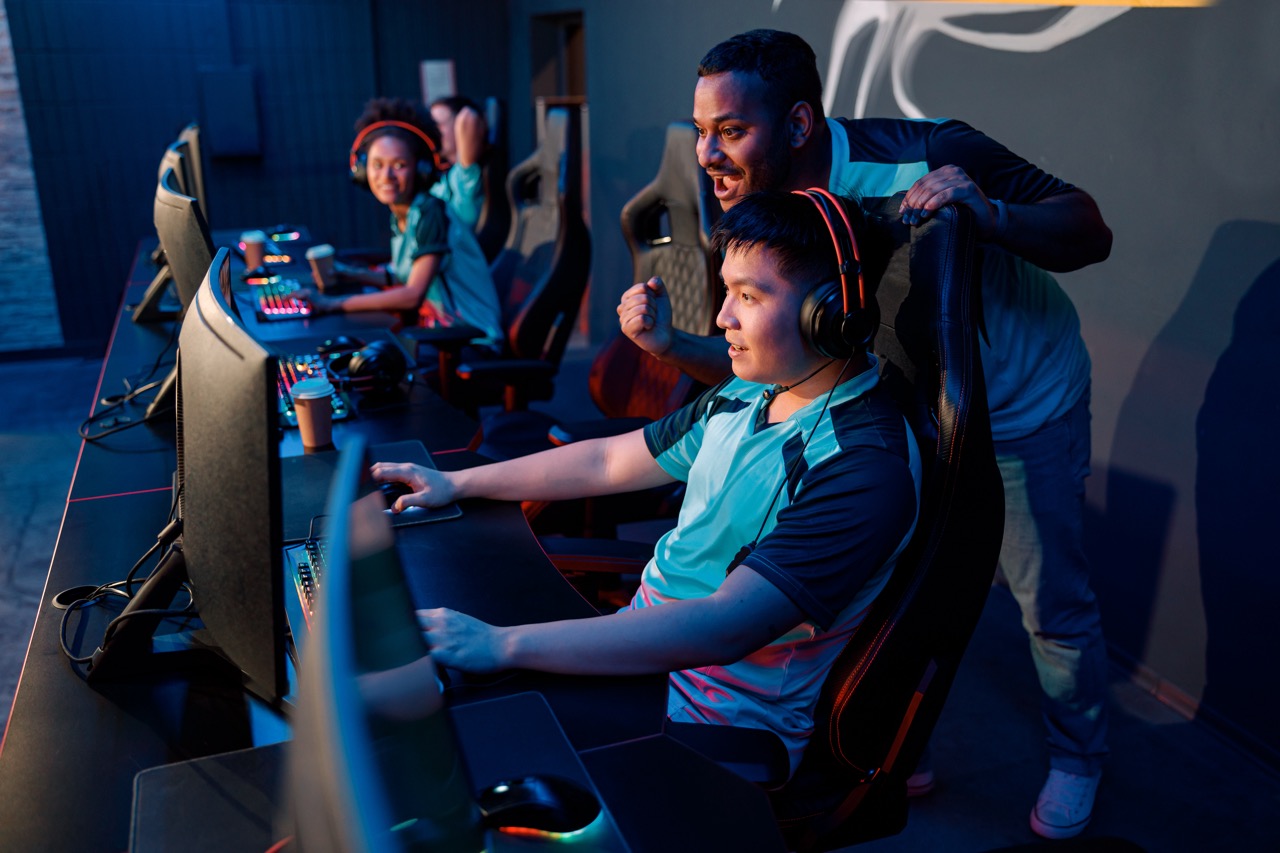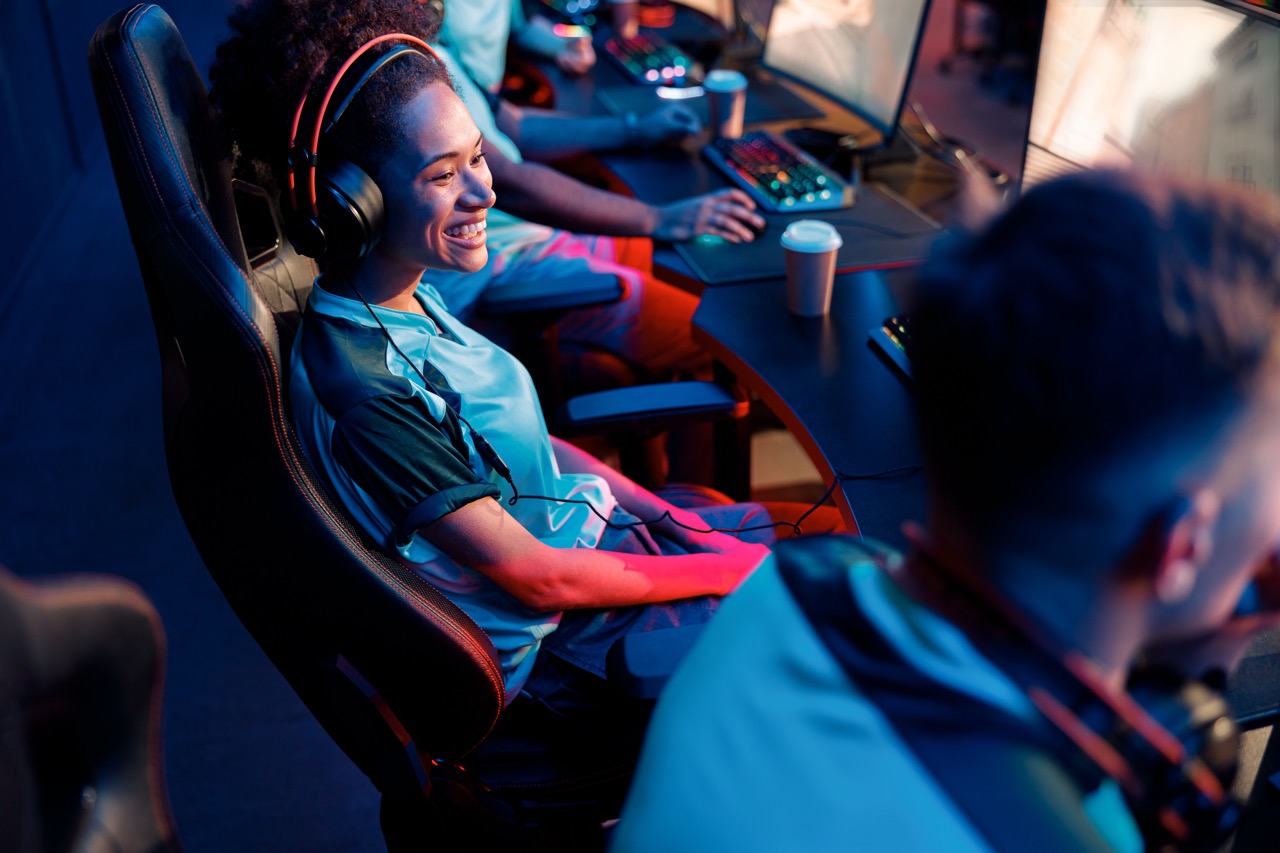In the ever-evolving landscape of gaming, one phenomenon stands out as both a cultural force and a marketing powerhouse: memes. These quirky, digestible snippets of humor have transcended traditional forms of media to become a crucial element in determining the popularity of video games. Whether it’s a hilarious gameplay fail, a cheeky reference to a beloved character, or a viral dance challenge, memes have the power to elevate a game’s profile, engage audiences, and even shape gaming culture itself. In this article, we’ll explore the various ways memes influence game popularity, from driving buzz around new releases to serving as potent marketing tools.
The Power of Memes: A Gamer’s Secret Weapon
Memes are part of the digital vernacular, and gamers have harnessed this power to communicate and connect with each other. They are often created in response to in-game events, glitches, or character quirks, allowing players to express their shared experiences in a fun, relatable way. This shared humor fosters a sense of community and belonging among gamers, who can rally around a single laugh-worthy moment, thus enhancing their connection to the game.
Moreover, memes have a unique way of breaking down barriers. They transcend language and culture, allowing players from different backgrounds to unite over a shared joke about a game they love. This collective laughter can spark interest among those who are not yet players, drawing them into the gaming world. By presenting games in a humorous light, memes make gaming more accessible and relatable to a broader audience.
Additionally, the rapid-fire nature of meme creation means that they can quickly capitalize on trending topics, making them highly relevant. For instance, a popular streamer might experience a funny in-game moment, and within hours, memes will flood social media platforms. This instantaneous reaction creates a cycle of engagement that keeps the game front-of-mind for both players and potential newcomers.
Finally, it’s essential to recognize that the emotional impact of humor plays a significant role in game loyalty. When players see a meme that resonates with their gameplay experiences, it creates a positive association with the game. This emotional connection can lead to lasting dedication, making memes not just a momentary fad but a long-term influence on game popularity.
How Memes Create Buzz Around New Game Releases
When a new game is set to release, the anticipation builds, and memes can serve as a catalyst for that excitement. Game developers and marketing teams have started recognizing the potential of meme culture, often releasing teasers or trailers that are meme-worthy right from the start. These snippets are perfect fodder for meme creators to spin into humorous takes, which in turn spreads awareness and interest in the upcoming title.
Furthermore, players often take it upon themselves to create memes related to the pre-release content, further amplifying the buzz. Whether it’s a character reveal or an exciting game mechanic, fans will jump on the opportunity to create and share memes that capture their excitement (or skepticism). This grassroots enthusiasm can often be more effective than traditional marketing, as it feels authentic and relatable.
The buzz generated by memes can also create a sense of urgency. As memes circulate, they can elevate the game to trending status, making it a hot topic among gaming communities. This creates a FOMO (fear of missing out) effect, encouraging even those who may not have been initially interested in the game to check it out. The more memes that gain traction, the more eyes are drawn to the game, creating a snowball effect of anticipation.
Finally, the role of influencers and content creators cannot be underestimated in this meme-driven buzz. When popular streamers or YouTubers engage with the memes, they introduce their audiences to the game in a fun, entertaining context. This not only establishes credibility but also encourages their followers to jump on the meme bandwagon, further driving the game’s popularity.
Viral Moments: When Memes Shape Game Culture
Viral moments in gaming can often be traced back to memes that encapsulate a particular experience, sentiment, or event. These moments can redefine how a game is perceived and influence its community culture in a significant way. For example, a single gameplay clip that goes viral can create iconic status for a game, as players rally around a shared experience that resonates with them on a deeper level.
Take the case of “Epic Fail” moments in games like "Fall Guys" or "Among Us". The hilarity of these moments has given rise to countless memes that highlight the absurdity of gaming blunders. This not only entertains players but creates shared narratives and experiences that define the game’s culture. Players find themselves quoting, referencing, or even recreating these moments, which solidifies their connection to the game.
Moreover, meme-worthy viral moments often seep into mainstream culture, influencing trends beyond the gaming world. For example, the "Among Us" crewmates became a cultural sensation, leading to memes that permeated social media and even made their way into non-gaming conversations. This cross-pollination keeps games relevant and sparks conversations that can last well beyond the initial release or hype cycle.
Additionally, viral memes can also shine a spotlight on lesser-known titles. When a particular game mechanic or character unexpectedly becomes a meme, it can elevate the game’s visibility, leading to a surge in interest and player numbers. This organic spread of popularity can often surprise both developers and gamers alike and exemplifies how powerful memes can be in shaping the narrative around a game.
The Role of Social Media in Meme-Driven Popularity
Social media platforms are the breeding grounds for memes, making them indispensable in the context of gaming popularity. Platforms like Twitter, Reddit, Instagram, and TikTok allow for rapid dissemination of memes, reaching vast audiences in mere minutes. Gamers use these platforms not just for communication but for creating and sharing content that resonates with their experiences and emotions tied to specific games.
The unique features of each platform also contribute to the evolution of gaming memes. For instance, TikTok’s short video format encourages quick, punchy content that often includes gameplay clips and humorous edits. This can lead to the creation of viral challenges related to a game, which can boost its popularity as players rush to participate and share their attempts.
Conversely, platforms like Reddit provide dedicated spaces for niche communities to thrive. Subreddits focused on specific games allow users to share their memes, fostering an environment where creativity and humor can flourish. This communal aspect not only strengthens the bond between players but also amplifies the reach of memes as they get upvoted and reshared, increasing their visibility.
Finally, the algorithms used by social media platforms often favor engaging content, which means that memes that capture attention can quickly go viral. This creates an environment where a single joke or moment can propagate through various channels, bringing more eyes to the game. As memes gain traction, they can drive discussions around the game, leading to increased engagement and interest in the title.
Memes as Marketing Tools: Leveling Up Game Brands
In the age of digital marketing, memes have emerged as a unique tool for game developers. Brands now recognize that creating meme-friendly content can significantly impact their outreach and engagement strategies. By understanding meme culture, game developers can craft marketing campaigns that not only inform but entertain, ensuring that their products resonate with potential players.
Gamers appreciate authenticity, and memes embody a form of relatable content that can humanize a brand. For instance, when a game developer participates in meme culture—whether by sharing player-generated memes or creating their own—it fosters goodwill and a sense of community. This engagement builds trust and loyalty, making gamers feel seen and appreciated, which can lead to higher sales and a dedicated player base.
Moreover, collaborations with popular meme creators and influencers can supercharge a game’s visibility. By leveraging the reach and creativity of these individuals, developers can tap into existing communities and introduce their games in a fun, engaging way. This strategy often leads to organic buzz that feels more genuine than traditional advertising, encouraging players to check out the game.
Even limited-time events or in-game challenges that connect to popular memes can create excitement and engagement. When players see that a game is in tune with current meme trends, it makes the gaming experience feel fresh and relevant. This adaptability can be a game-changer, helping to sustain interest long after a title’s release.
Future Trends: Memes and the Next Big Game Hits
As gaming continues to expand into new genres and technologies, the relationship between memes and game popularity is set to evolve even further. With the rise of virtual reality (VR) and augmented reality (AR), new gameplay experiences are likely to generate fresh meme content. As players engage with these technologies, their unique interactions will create novel moments ripe for meme creation, potentially leading to the next viral sensation.
Moreover, the increasing influence of live streaming on platforms like Twitch has transformed how games are consumed. Streamers often become meme creators themselves, inadvertently shaping the gaming landscape through their reactions and interactions. As the audience engages with both the game and the streamer, a new layer of meme culture is formed, with both parties feeding off each other’s energy and creativity.
Additionally, as game developers continue to prioritize community engagement, we may see more games designed to be "memeable" from the ground up. This could include mechanics or storylines that are intentionally crafted for humor, enabling players to create and share memes easily. Such an approach could foster a more vibrant and engaged community, ultimately contributing to the game’s longevity and popularity.
Finally, the global nature of gaming means that memes will continue to transcend geographical boundaries. As players from different cultures interact and share their own takes on games, the meme landscape will become increasingly diverse. This cultural exchange will not only enhance the richness of gaming culture but also pave the way for innovative new games that resonate with a global audience.
In conclusion, memes have become an integral part of modern gaming, influencing everything from community engagement to marketing strategies. Their ability to create buzz, foster shared experiences, and shape game culture underscores their power in determining a game’s popularity. As we look to the future, it’s evident that memes will continue to play a vital role in how games are created, marketed, and enjoyed










